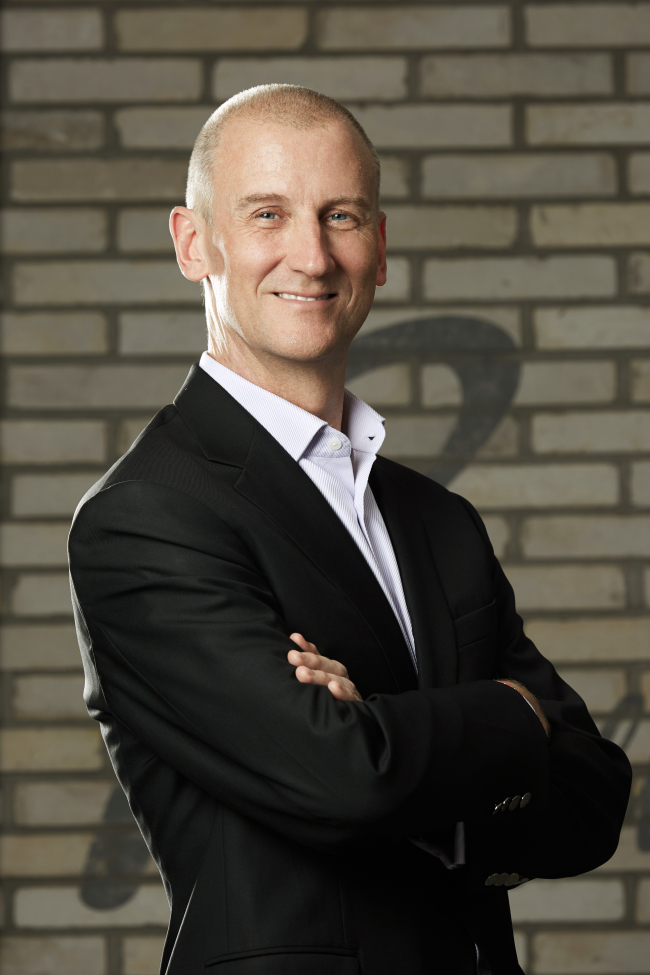[Herald Interview] Havas Korea expands presence in Korean ad market
By Korea HeraldPublished : July 9, 2017 - 17:01
Quick and wide adaptation of technology is what makes South Korea a tough yet important market for communications firms, said a regional chief of a leading global advertisement and public relations company.
“Korea is the first country that I visited among the 19 countries in the Asia Pacific region when I came to work last October,” said Mike Amour, the CEO of Havas APAC Group, during an interview with The Korea Herald at the Havas Korea office in Seoul last week.

Havas Group is one of the world’s largest advertising and public relations groups headquartered in Paris, France. It employees some 20,000 workers across more than 100 countries.
Since Havas Korea began operations here in 1994, it has expanded to manage more than 30 clients in eight industries, including automobiles and health care.
Seeking to expand its presence here, Havas Korea is in the final stage of sealing a deal to acquire a rising local digital communications company based in Seoul by the end of this year.
“Korea is a tough, but important market,” Amour said.
Widespread use of high-speed internet and smartphones here allow the communications professionals to anticipate changes in consumer behavior and business environment ahead of time, he said.
As information enables a precise prediction of the future, companies are keen on getting their hands on some to prepare themselves in the rapidly changing digital era.
In terms of market size and as a member of the G-20, Korea is an essential country for clients, added Amour.
The Scotland native began his career in the advertising industry in 1985 and worked with leading global companies including Nike, Coca-Cola and American Express.
He has also lived and worked in London, New York, Tokyo, Paris, Portland and Singapore, managing operations and clients for the world’s top agency networks, including McCann-Erickson WorldGroup, Wieden+Kennedy and TBWA Worldwide.
Based on his extensive international experience, Amour was appointed to lead Asia Pacific operations of Havas Group last October.
Amour expressed difficulties in the Korean market due to in-house ad agencies run by conglomerates, a system unique to Korea.
In-house agencies self-manage advertisements, communications and public relations, such as Hyundai Motor Group’s advertisement affiliate Innocean and Samsung Group’s Cheil Worldwide.
Despite such hurdles, Havas Korea has recently flagged a deal to manage the creative communications of BMW Korea, which Amour noted as one of the most rewarding moments.
Havas Korea also works with the country’s top companies and state-run institutes, including Innocean, Korea’s top cosmetics maker AmorePacific and the Korea Electronics Technology Institute under the Ministry of Trade, Industry and Energy.
“Compared to when I visited Korea last year, Havas Korea has shown great development. It now has a staff of 60 to 70 people and the energy is remarkable,” said Amour.
In the long-term, Havas Korea aims to buy two to three more companies here.
As the global businessman of a multinational advertising group, Amour said “the speed of change” concerns him the most.
In the past, advertisers could somewhat assume that the advertisements could reach the consumer group when the media was limited to television, radio, newspaper and magazines, he said.
Due to digitalization, however, the media landscape now not only changes rapidly, but has also become fragmented.
Such change has given a boost to Korea’s stance within the Havas Group. The country’s wide spread high-speed internet has, for instance, ranked No.1 worldwide for 13 consecutive quarters, according to a report by Akamai Technologies.
Amour said it is Havas’ job to help clients prepare for change, citing the example of how Facebook lost its appeal to Instagram in the span of two to three years.
In efforts to prepare for the future, Havas Group runs a separate company called 18 Labs that makes 18 months predictions in conjunction with leading universities and research centers around the world, including Korea’s Seoul National University.
“Diverse channels have also weakened brand loyalty, which Havas will fill with the right leadership, creativity and innovation,” said Amour.
According to an annual worldwide survey of 300,000 people conducted by Havas Group, most people answered they would not care if 74 percent of all brands disappeared for good, showing a lack of brand loyalty.
As for the latest trend in the ad industry, Amour picked three to four-minute-long creative online commercials that tell a story.
Good storytelling is what sticks with consumers, Amour said, citing an advertisement for the major French retail chain Monoprix which Havas worked on, that had featured a love story.
By Kim Bo-gyung (lisakim425@heraldcorp.com)
-
Articles by Korea Herald


![[Exclusive] Korean military set to ban iPhones over 'security' concerns](http://res.heraldm.com/phpwas/restmb_idxmake.php?idx=644&simg=/content/image/2024/04/23/20240423050599_0.jpg&u=20240423183955)




![[Herald Interview] 'Amid aging population, Korea to invite more young professionals from overseas'](http://res.heraldm.com/phpwas/restmb_idxmake.php?idx=644&simg=/content/image/2024/04/24/20240424050844_0.jpg&u=20240424200058)
![[Pressure points] Leggings in public: Fashion statement or social faux pas?](http://res.heraldm.com/phpwas/restmb_idxmake.php?idx=644&simg=/content/image/2024/04/23/20240423050669_0.jpg&u=)










